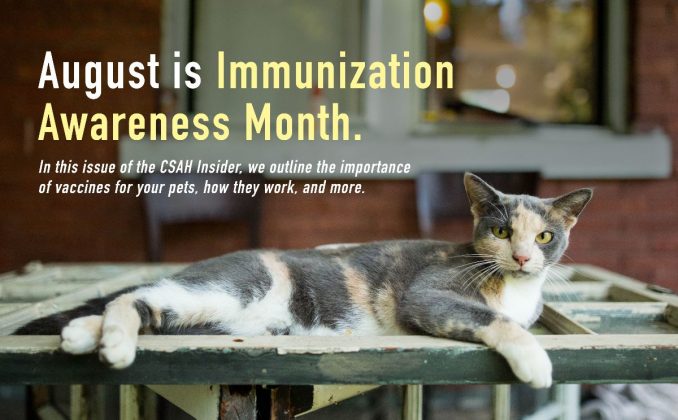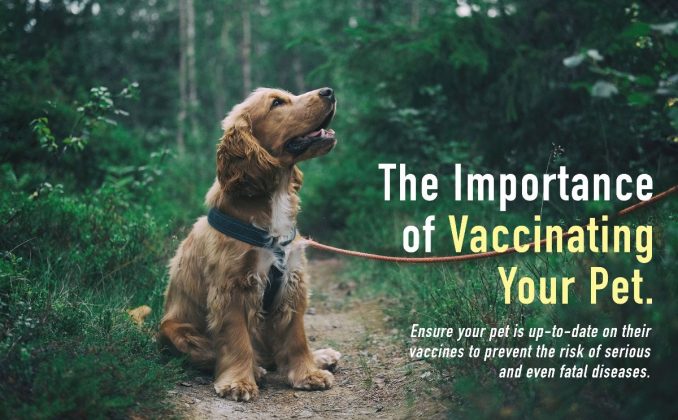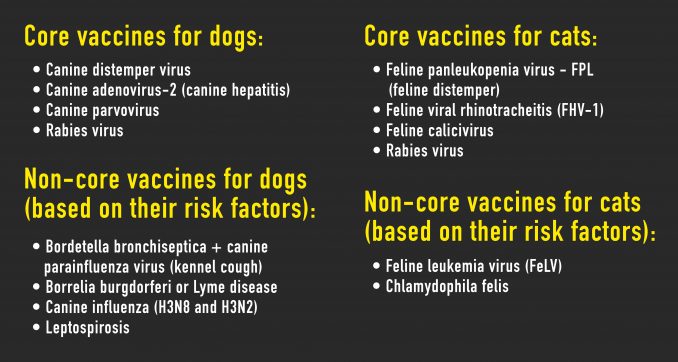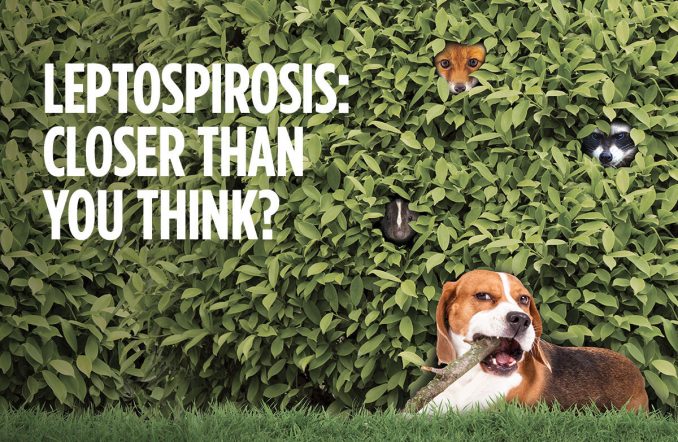
What is a vaccine, and how does it work in the body?
A vaccine is a preparation that helps the body’s immune system get ready to fight disease-causing organisms. If the immune system has “seen” an unfamiliar microbe (bacteria or virus) as part of a vaccine, it’s primed to produce antibodies if it “sees” (i.e. is exposed to) the same microbe again. Antibodies are what help the body fight infection and protect it from getting the same illness again. Vaccinations are intended to reduce the severity of the disease, or prevent the disease entirely, by creating immunity. Although they are not 100% guaranteed prevention, they are your pet’s best bet for protection.

Are they safe for my pet?
The general answer is yes. As with any medical procedure, there is a small chance of side effects; in most cases, these risks are much smaller than the risks of the disease itself. Common side effects can include soreness at the injection site, sluggishness, and eating or drinking less for 12-24 hours; but most pets experience no ill effects at all. Very rare side effects can include allergic or autoimmune reactions, but know that the risks are below 1%. Vaccines can provide potentially life-saving benefits, and are one of the easiest ways to help pets live a long and healthy life. If you have any concerns please don’t hesitate to reach out to us.

The most effective tool is prevention.
Vaccinations help protect pets from the risk of potentially serious and even fatal diseases. They not only cost considerably less than treatment, they are also far less stressful for pets and pet parents alike. Keeping your pet’s vaccines up to date is crucial for your pet’s well-being.
Vaccines are available to protect your pet against a wide variety of diseases. Although they are not yet able to eliminate or cure these diseases, vaccines for rabies, distemper, parvovirus, feline leukemia and panleukopenia have greatly reduced the incidences of disease – improving pet health and welfare, and preventing fatal outcomes.

Although it is considered non-core, our hospital has seen an increase in Leptospirosis cases over the past few years. We are encouraging pet owners to take new consideration into this vaccine if it is not part of their pet’s current vaccine protocol.
Leptospirosis is caused by a bacteria that is found in soil and water, and can cause severe liver and kidney damage in the affected pet. In the Thornhill area, it is commonly passed through the urine of other mammals (raccoons, skunks, rodents), so it is very easy to contract in your local dog park or even your backyard. Unfortunately, Leptospirosis is often a difficult disease to diagnose as symptoms can be vague and can look like many other conditions before the disease progresses. Common early symptoms include vomiting, lethargy, depression, increased thirst, and fever. Leptospirosis is also a zoonotic disease, meaning it can be spread from animals to humans, so vaccination is one vital step needed to protect your pets and your family. Currently available vaccines will protect dogs for 12 months, so annual boosters are needed.
